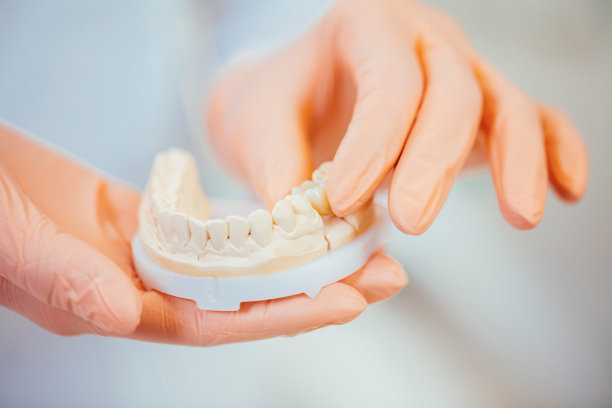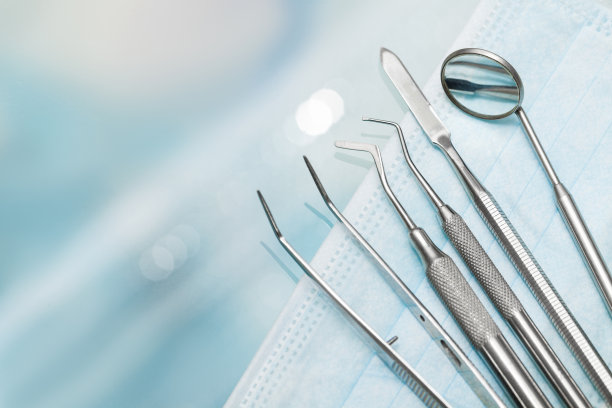Summary: Proper dental care before and after a tooth extraction is crucial for maintaining optimal oral health. This article explores the significance of preparation, the extraction process, post-operative care, and the long-term implications of neglecting dental hygiene. Understanding these aspects not only aids in recovery but also helps in preventing any further dental complications. Emphasizing proper practices can lead to a smoother extraction experience and enhanced overall health. The information provided aims to equip individuals with the knowledge necessary to ensure a successful tooth extraction and subsequent recovery.
1. Preparation Before Tooth Extraction

Before undergoing a tooth extraction, adequate preparation is essential. This includes scheduling a comprehensive dental exam to assess the overall health of the mouth and surrounding teeth. By addressing any underlying issues such as infections or gum disease beforehand, dentists can ensure a safer extraction process. Furthermore, understanding the specific type of extraction required, whether simple or surgical, allows patients to mentally prepare for the procedure.
Patients should also consider their medical history and communicate any medications they are currently taking. Certain medications can affect blood clotting and increase the risk of complications during and after the extraction. Proper consultation with the dentist can facilitate a tailored approach to care and highlight any adjustments needed before the procedure.
Additionally, maintaining proper oral hygiene leading up to the extraction is critical. Regular brushing and flossing help reduce the bacterial load in the mouth, minimizing the risk of post-extraction infections. A healthy mouth environment supports a smoother recovery process, making preparation an indispensable step.
2. The Extraction Process Explained
The extraction process itself varies depending on the complexity of the tooth being removed. For simple extractions, local anesthesia is often used, allowing the patient to be awake and aware while minimizing pain. For more complicated cases, general anesthesia may be required. Understanding these options helps patients feel more comfortable and informed about what to expect during the procedure.
The dentist plays a crucial role in ensuring a safe extraction. Utilizing the right tools and techniques is vital to prevent damage to surrounding teeth and tissues. Post-extraction care instructions should be communicated clearly to the patient, covering essential topics such as bleeding management and signs of complications.
Following a well-planned extraction process contributes significantly to the overall success rate and recovery time. Being aware of the steps involved helps mitigate anxiety and empowers patients to take proactive measures toward their dental health.
3. Essential Post-Operative Care Strategies
After a tooth extraction, patient care becomes paramount to prevent infections and promote healing. The first 24 hours are critical, as this is when blood clots form at the extraction site. Patients should follow specific care instructions, such as avoiding vigorous rinsing or spitting, to allow the clot to stabilize. Rather than using straws, patients should drink liquids directly to prevent dislodging the clot.
Managing pain and swelling is another crucial element of post-operative care. Dentists typically recommend over-the-counter pain relief options or prescribe medication as needed. Applying ice packs to the affected area can also help minimize swelling during the first few hours after the extraction.
Monitoring for signs of complications, such as excessive bleeding, persistent pain, or fever, is essential. Should any of these symptoms arise, patients must reach out to their dental provider immediately. Staying vigilant during the recovery phase significantly influences the overall outcome of the extraction experience.
4. Long-Term Effects of Neglecting Dental Care
Neglecting proper dental care before and after a tooth extraction can lead to significant long-term consequences. Failure to maintain oral hygiene can result in infections, which may complicate healing and sometimes require additional treatments or procedures. Infection and inflammation can also have systemic implications, affecting overall health.
Additionally, missing teeth can lead to shifting of adjacent teeth, resulting in misalignment and bite issues. This misalignment can potentially affect chewing and increase the risk of additional dental problems, necessitating orthodontic intervention down the line. Long-term neglect can create a cycle of dental decay and extraction, leading to more extensive and costly treatment in the future.
Long-term oral health is closely linked to immediate post-extraction care. By adhering to proper dental care practices, individuals can ensure the longevity of their oral health. Investing time in understanding these procedures ultimately leads to better outcomes and a stronger commitment to ongoing dental hygiene.
Summary:
This article has elucidated the importance of proper dental care before and after a tooth extraction. Emphasizing preparation, understanding the extraction process, following post-operative care, and acknowledging the long-term implications of neglect allows for improved outcomes, ensuring optimal oral health.
This article is compiled by Vickong Dental and the content is for reference only.
Vickong Dental
Vickong Dental is a large medical group established in Hong Kong in 2008 by professors from well-known medical universities in Guangdong and Hong Kong, as well as medical doctors from key national '985' universities (including Master's supervisors and senior professors). The chain of branches brings together expert dentists with PhDs and Master's degrees from Hong Kong and Mainland China, committed to providing high-quality dental treatment.
"Vickong Dental Practices the University Motto of 'Healing and Serving Society,' with a Stable Operation for Sixteen Years. It Has Been honored with Hong Kong Enterprise Leaders's Choice,' and is a Global Trusted Implant Center for the Nobel Implant System. Recommended by Hong Kong Metro Broadcast and Guangdong Television, it Serves Customers from Over Thirty Countries and Regions, Gaining the Trust and Favor of Citizens from the Guangdong-Hong Kong-Macau Greater Bay Area and Surrounding Cities.

Thousands of customers' unanimous praise
The most recognized and highly recommended dental service by customers in the Guangdong-Hong Kong-Macau Greater Bay Area
We Ensure You Receive Detailed Care and Attention Here
Hong Kong standards, Shenzhen prices, Your Trusted English-speaking dentists

Vickong Dental Medical-Grade Instrument Disinfection Process
Vickong Dental Medical-Grade Instrument Disinfection Process

Vickong Dental Chain: A Warm and Comfortable Environment for Treatment






Appointment Hours

Q&A
Why choose Vickong Dental?
Vickong Dental practices the university motto 「Medicine to Benefit Society」, with each branch bringing together highly qualified dentists with doctoral and master’s degrees from Hong Kong and the Mainland, and has maintained seventeen years of steady operation。Recipient of 「2024 Hong Kong Enterprise Leaders Brand」, 「2025 Hong Kong Enterprise Leaders Brand」, a Nobel Biocare Global Trusted Implant Center, and a brand recommended by Metro Radio Hong Kong and Guangdong TV。
To date, we have served customers from more than thirty countries and regions,earning exceptionally high word-of-mouth recognition and trusted recommendations from residents across the Guangdong-Hong Kong-Macao Greater Bay Area and surrounding cities
We have eight major branches in Zhuhai、Shenzhen,and a consultation and service assurance center in Hong Kong,so you can book a free consultation at any time for any questions,which is very reassuring.
If I do not accept the quotation after the CT scan, will I be charged??
No! As long as the actual treatment has not started, you will not be charged any fees.
Will there be any additional charges during the treatment process?
No, there won’t be any additional charges. Before treatment begins, we will clearly explain the treatment plan and its corresponding fees. Only after the patient agrees and signs the consent form will we proceed with the dental service.
Can I pay in Hong Kong dollars?
Yes. Vickong Dental accepts payment in Hong Kong dollars. The amount will be converted based on the exchange rate of the day, and the applicable rate will be clearly communicated to you in advance.
Can I reschedule my appointment at any time?
Yes. Please contact us via **WeChat** or **WhatsApp** as early as possible, providing your original appointment time and details, along with your preferred new date and time slot for rescheduling.













